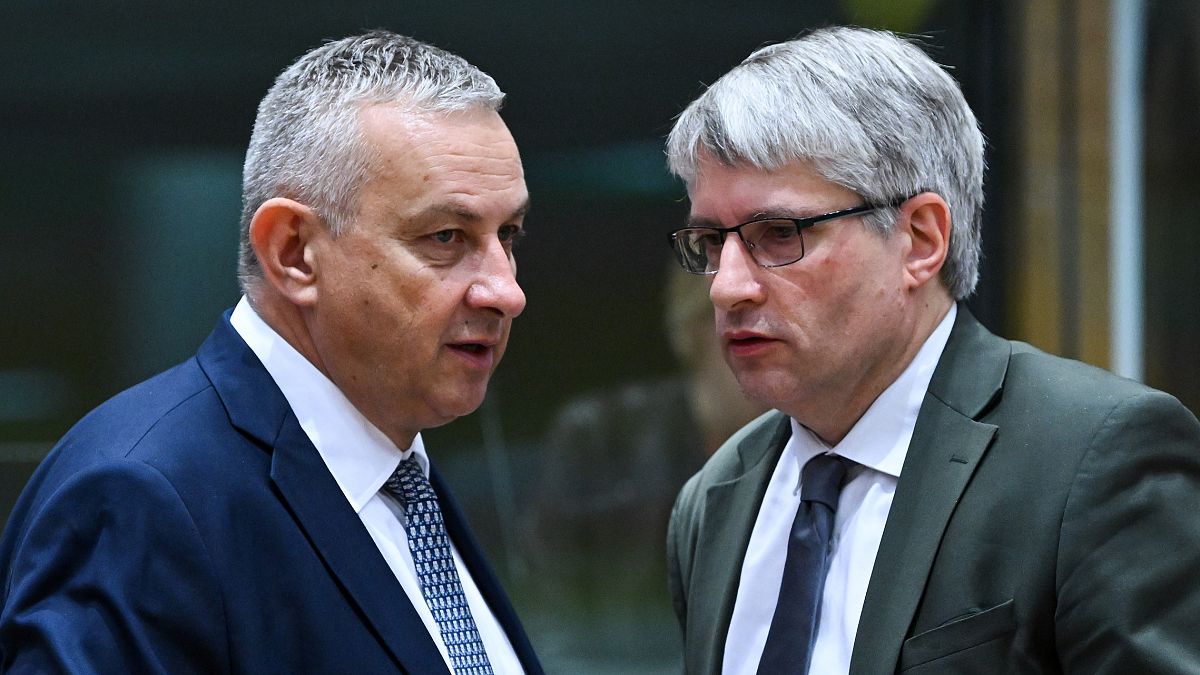Berlin has agreed to scrap a gas storage levy, with the European Commission questioning its legality under EU law, and eastern EU members suggesting it plays into Moscow’s hands.
Germany has announced it will drop a gas storage fee introduced during the energy crisis of 2022, after eastern EU members warned the increased cost of imports from the west was forcing their continued reliance on Russian gas.
The launch of Vladimir Putin’s invasion of Ukraine saw Moscow weaponise gas supplies on which the EU, and Germany in particular, were heavily reliant. Berlin introduced the storage levy in October that year to partly offset the cost of stockpiling from alternative suppliers as wholesale prices rocketed ahead of winter.
“It was never our intention to hamper the diversification, with this levy, away from Russian gas,” said Sven Giegold, a state secretary at Germany’s federal ministry for economy and climate action, as he arrived for an energy summit in Brussels on Thursday (30 May).
“Quite to the contrary, the income from that levy, financed mainly by German customers, has contributed to filling gas storage facilities and [thus] stabilising prices and markets,” Giegold said, adding that EU countries would no longer have to pay the charge, which was originally intended to expire last month, from January 2025.
The German official, a former Green MEP, said he could not discuss the details of the legislative change, but that it was “very likely” that German customers will continue to pay even as the levy is lifted from gas flows exiting Germany,
In a document circulated ahead of the meeting, Austria, Czechia, Hungary and Slovakia had restated their concern that the storage fee increased costs for gas traders and, ultimately, customers in their region.
“Together with the scheduled end of transit of Russian gas via Ukraine by the end of this year, the levy will significantly reduce the security of supply of the whole CEE region and make it more vulnerable towards price fluctuations,” they wrote.
Energy commissioner Kadri Simson warned at a previous energy ministers’ summit in March that export restrictions or cross-border levies put solidarity at risk, and the EU executive had signalled it was considering legal action based on a possible infringement of European single-market rules.
Czech industry and trade minister Jozef Síkela, on his way into today’s meeting, said the volume of Russian gas flowing into his country had increased since September as wholesale prices fell towards pre-war levels and the relative impact of Germany’s levy increased.
“Of course none of the traders is telling us that this is Russian gas…because this is gas from the Ukrainian, Austrian and Slovak storage,” Síkela said. “But if you count the flows, there is definitely a big portion of Russian gas, and we do not like to see Russian gas on Czech territory.”
Despite their altercation over the storage levy, Berlin and Prague joined forces ahead of the summit to call for the EU to set up a “high-level working group” to accelerate a complete decoupling from Russia’s energy market.
“The aim, in cooperation with the European Commission, is to ensure a coordinated procedure in limiting the import of both gas and oil or nuclear fuel from Russia,” Síkela said on social media after a discussion of the topic.
Despite the grinding war of attrition that is devastating the country, gas remains unaffected by the EU’s incremental sanctions regime and has continued to flow through Ukraine in line with contracts between Russia’s Gazprom and the EU – but this agreement is due to come to an end in December, and Simson has signalled there is no need or intention to renew it.
Supply shortfalls due to Moscow’s throttling of deliveries and the as yet unexplained destruction of the Nord Stream link to Germany have been largely offset by a ramping up of deliveries from Norway and liquefied natural gas (LNG) from the US and elsewhere, along with a recently extended voluntary demand reduction policy.

